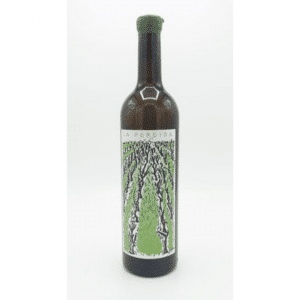Does natural wine stink?! Only if badly made
In this article, I explain what the unpleasant odour is that can be found in natural wines and why it happens.
Before delving into the subject of this article, natural wine stinks (?!), it is useful to quickly define this idea of wine and explain it in broad terms.
Natural Wine
Natural wineas already mentioned, is not a completely truthful definition when it comes to this type of wine. Grapes need only minimal human manipulation to become wine. It would be more correct to call it natural or naturally produced winewithout the end result changing one iota.
Natural wine in the vineyard
Grapes in the vineyard do not undergo chemical treatment of any kind, as we explain in this articleplants are not compulsively watered. Pesticides are totally banned. Harvesting is always done manually, without mechanisation, in order to select only the best bunches.
In the cellar
In the winery, selected yeasts are not used to trigger fermentation, which takes place spontaneously at an uncontrolled temperature. In fact, the indigenous yeasts.
These, by triggering alcoholic fermentation, allow the production of carbon dioxide and sulphur dioxide.
Normally, for this reason, no sulphites are added post malolactic fermentation or pre-bottling. It can happen that, for particular needs of the producer, sulphur dioxide is added in very small quantities, but still well below the organic limit.
Does natural wine smell?
After this introduction, we can address the question: Does natural wine stink!? There are many variants to consider when pondering this issue. The first to consider is that by not using selected yeasts or aromas, as per the oenological manual, the nose of a natural wine can be off-putting at first impact. But it is not puzzling, it is typical of the wine. This is net of defects, which can be found in badly made wines.
Defects
Banally, we can say that a natural wine stinks when it is not properly produced. Some wines just need to improve in the bottle or to be opened well in advance of tasting.
Natural wine stinks in conjunction with certain defects
So let's take a look at the main problems that can lead to this unpleasant effect that makes us think that natural wine stinks, although in reality these are defects common to all wines.
Oxidation
You know that orangey colour and slightly marbled taste that can be found in some wines? If so, you have already tried an oxidised wine. On the one hand, this can be a defect in the strict sense, not an intentional one. The wine may have been stored badly or may have reached the end of its life span. On the other hand, in conjunction with a wine that is still fresh and has many years ahead of it, this may simply mean that the wine is complex and that oxidation is just one of its peculiarities. I recommend trying a wine from Klinec to fully understand what I mean. The absence of added sulphur dioxide, or the meagre use of it, often leads to wines of great pretensions taking on oxidised contours, all within the norm!!!
Reduction
It is the exact opposite of oxidation, that closed or rotten eggy smell that is most easily found in a young wine. As a rule, further ageing in the bottle and/or good oxygenation, for example in a decanter, can make these scents disappear. So you need to be patient, even if unfortunately this is not always a solution.
Volatile acidity
When a wine reminds us of vinegar on the nose, we are dealing with a product with a very high volatile acidity. Acetic acid has developed, consciously or unconsciously, during alcoholic fermentation and characterises the scents of that wine. In short, the fermentation did not start at the right time, unless it was an effect intended by the producer.
Probably intended to give balance to a very dense wine, to degrease. This normally occurs in production areas characterised by torrid heat and a dry climate.
Brett
Brett brings together animal and barn smells and results from the massive presence of Brettanomyces during alcoholic fermentation. Its presence is very often synonymous with an unpleasant wine that should unfortunately be thrown away.
There are places in the world, however, such as Burgundy, where this scent is considered an expression of aromatic complexity, and it is not uncommon for great, long-lived wines to carry it.
Sulphur bae treatment
In organic farming it is basically forbidden to use chemical products but sulphur and copper treatments are allowed below these limits. In extremely humid conditions these can be applied in such quantities as to give the wine a sulphurous or rotten egg smell. In the vast majority of cases this is a defect and as such we at Apewineboxes.com do not offer wines with such olfactory returns.
So does Natural Wine stink?
The answer we can now provide is based on more precise characteristics and therefore the answer is yes, sometimes the natural wine stinks to the extent that we consider these smells unpleasant and when these defects are not intended by the producer. On the contrary, we are not talking about stink but about the characteristics of the wine's complexity. It's like cheese, does a Gorgonzola stink or does it smell irresistible?!
-
Add to WishlistAdd to Wishlist
-
Add to WishlistAdd to Wishlist
-
Add to WishlistAdd to Wishlist
-
Add to WishlistAdd to Wishlist
-
Add to WishlistAdd to Wishlist
-
Add to WishlistAdd to Wishlist
-
Add to WishlistAdd to Wishlist
-
Add to WishlistAdd to Wishlist











